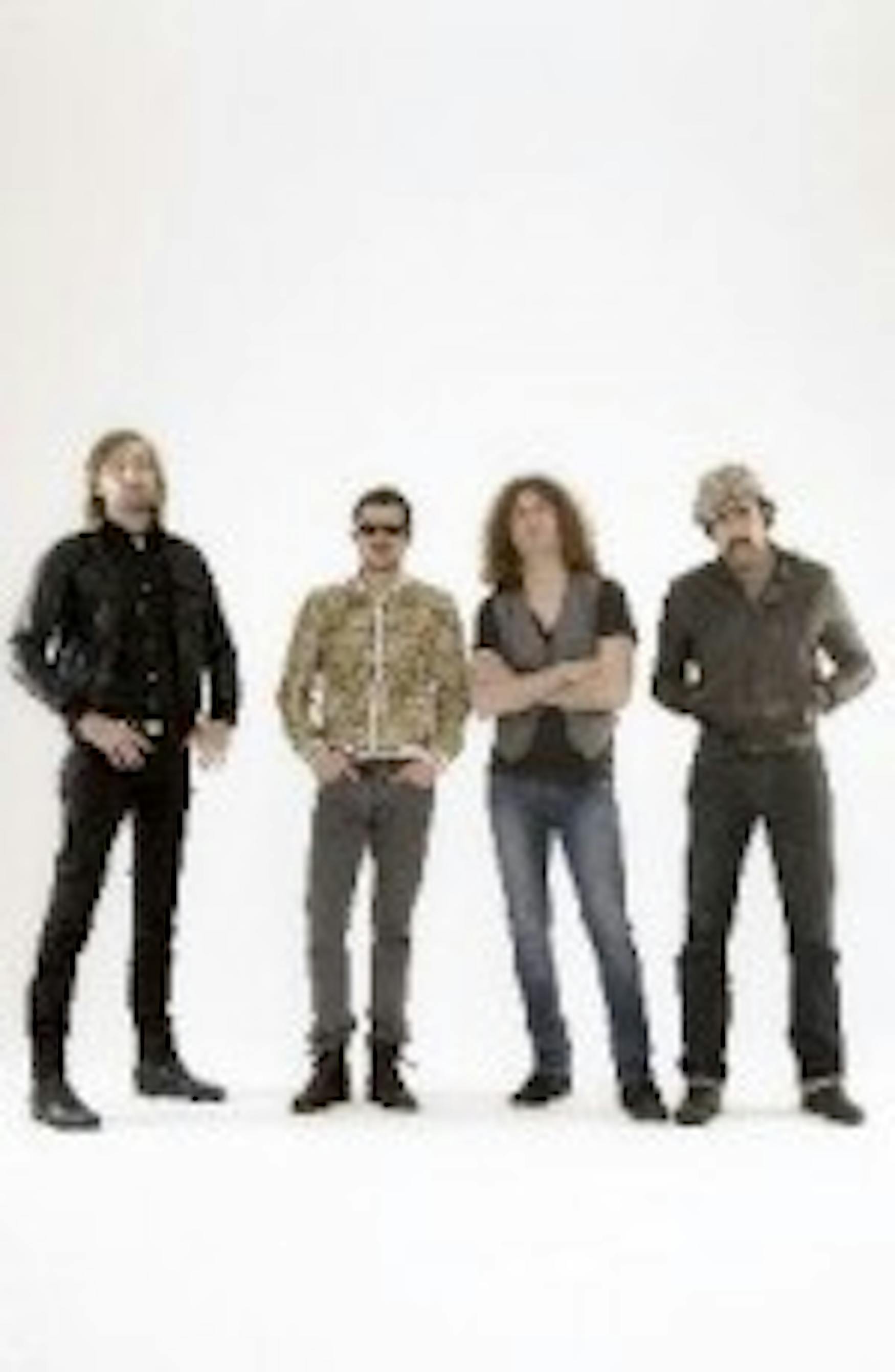Don't take a bite out of the Boss
Sam's Town rings with familiar mythologies: of causeless, teenage rebels from working-class towns; of going for broke after you've hit your lowest; of burning down the highway at 90 miles per hour, with dust in your rear-view and America on the horizon. On the sophomore album by The Killers, the only thing bigger than these tales is the sound. Caterwauling riffs and thundering drums, tortured baritones that soar cathartically and an ambition checked only by the confines of a studio all coalesce in an embrace of dramatic gestures. Consciously and desperately, Sam's Town is an album of statements. Sound familiar? On the merits of a record that once was described in very similar terms, Bruce Springsteen became in 1975 the biggest rock star in the world. Born to Run was a masterpiece born under fire: Had Springsteen's third full-length not been a hit, he would have been dropped from his major-label contract. So he deftly pulled out all the stops with a majestic and Spectorian creation, one that ruminated on proletarian woes yet reached celebratory--even religious--heights.
On Sam's Town, The Killers reach as high but come away empty-handed. A hubris far from Springsteen's desperation drives these anthems, which attempt to shimmer but tragically overreach. The Killers' Las Vegas is no Asbury Park, and their America seems far less universal than Born to Run's. For Springsteen's characters, making ends meet in post-industrial New Jersey necessitated release and escape, if only just to stay sane. But for Brandon Flowers, The Killers' frontman, lamenting his "two-star town" is an essential means to an end: recording, as he told MTV this year, "one of the best albums of the past 20 years."
What Sam's Town is, instead, is a vast overestimation of both The Killers' importance and limitations. They still wade ankle-deep in the New Romantic sound of Hot Fuss, their quintuple-platinum 2004 debut, with enormous synthscapes replacing the E Street Band's wall of sound. On the single "When You Were Young," Flowers attempts to trade his impression of Simon Le Bon for The Boss's low, weather-worn growl, but he can't capture its agony or earnestness. All he and his band offer is a cheap imitation of grandeur.
There are other sleeve-adorning influences, too: "Bones," the album's second single, begins with a foppish choir--"come with me!" it sings resoundingly--lifted from Queen's A Night at the Opera. And the specter of U2--perhaps the only act since Springsteen's heyday to consistently unite critical and popular opinion--drifts heavily over songs like "Read My Mind," which vainly crafts a myth from shimmering eighth notes and a desperate escape from The Killers' hometown demons.
Rock 'n' roll has always been self-referential, of course, even at its most forward-thinking moments. The Beach Boys famously began Pet Sounds--their greatest achievement--with the drum kick from The Ronettes' "Be My Baby." And Born to Run's elaborate arrangements are heavily indebted to Brian Wilson's ambitious studio concoctions. Where The Killers err most grievously is their aspiration to--and imitation of--Springsteen's greatness, to the neglect of the most visionary components of his sound, not to mention their own.
There are bands in 2006 who articulate a reverence for The Boss much more effectively. The Wilco side project Loose Fur's second album, Born Again in the U.S.A., pays homage to Springsteen's 1984 smash not only in name; it tightens that band's sound--once jammy and shambolic--in the same way Springsteen honed his act after 1973's The Wild, the Innocent & the E Street Shuffle, and again after 1982's moping but brilliant Nebraska. And Badly Drawn Boy's forthcoming Born in the U.K. works obvious nods to Springsteen into the Manchester popist's eclectic sound. On the disc's title track, crashing cymbals and violent piano chords charge with Springsteen's orchestral fury, but never overtake a more consistent whimsy.
Best of all is Boys and Girls in America, the newest album by the Minneapolis-via-Brooklyn band The Hold Steady. The group takes Born to Run from the arena into the pub, and its pitiable characters cope with life in a factory town not by running away, but with alcohol and narcotics. The disc is heavy on joyous riffs with harrowing, often miserable lyrics: "They say it's not a problem until you start doing it alone," frontman Craig Finn sings. "They say it's not a problem until you're bringing it home." Like much of Born to Run, it's party music that rewards serious second listens.
Unlike all these bands, and Springsteen in particular, The Killers entered the studio as overdogs. Hot Fuss was inconsistent and too top-heavy, but it yielded five hit singles, a feat that could go to any fledgling band's head. In moving away from that album's superficial yet proficient New Wave, The Killers have committed one of rock 'n' roll's gravest career-enders: They failed to deliver on ambition.



Please note All comments are eligible for publication in The Justice.